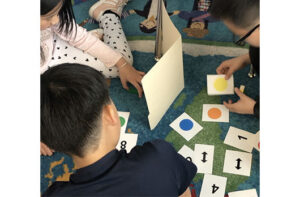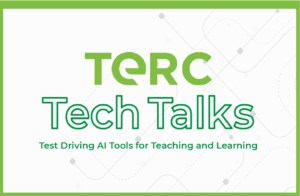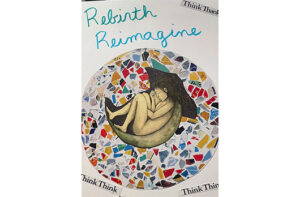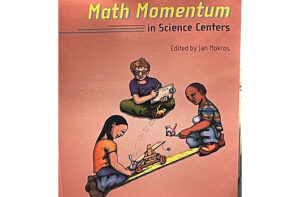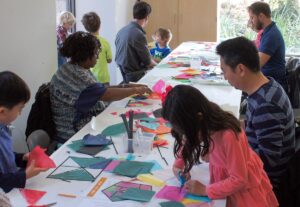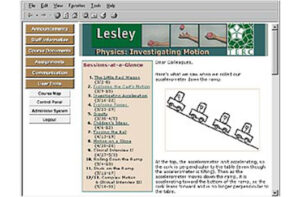Storybook STEM
Professional Convening for Cross-Sector Understanding of Children's Literature as a Tool for Supporting Informal STEM Learning
Lead Staff:
Scott PattisonSummaryA large body of research highlights the benefits of storybooks for children’s learning. In preschool classrooms, the use of storybooks to engage young children in STEM is a frequent topic of practitioner-oriented articles. There is also an increasing number of informal STEM education (ISE) projects exploring how to leverage storybooks to engage young children and their families in STEM. While there is universal excitement for the potential of storybooks in ISE, there is a critical need for more cross-project sharing, further research, and additional efforts to synthesize and share findings.
Storybook STEM catalyzed new research studies and partnerships to advance efforts in ISE contexts, including the role of books in learning experiences, how books are selected or designed, and how the reading is facilitated by teachers and families. Participants of the convening were educators and researchers working with or studying family learning for preschool-age children (three to five years) using early childhood fiction books as a tool for engaging families in STEM topics and skills.
Research ActivityStorybook STEM was implemented in four phases:
- Pre-convening activities to plan, synthesize existing resources, engage a broader group of educators and researchers beyond convening attendees, and prepare convening participants to maximize the value of the in-person discussions;
- In-person convening to catalyze cross-project discussions, outline promising practices, and identify questions and ideas for the future;
- Evaluation of the impact and value of the convening, from the perspective of participants and a project steering committee; and
- Dissemination of findings and recommendations to educators and researchers within and beyond the ISE field.
ImpactThe findings from this project provide a critical resource to help these efforts be more effective and inclusive for audiences across the country. Research studies motivated by the convening address the lack of empirical work on storybooks as a tool for ISE programs and advance the ISE field’s knowledge of how to integrate these books effectively. Because storybooks are a highly accessible and almost universally used family learning resource, the topic of the convening was relevant to a wide range of audiences and helped educators broaden access to ISE for traditionally underserved and under-resourced communities.
A large body of research highlights the benefits of storybooks for children’s learning. In preschool classrooms, the use of storybooks to engage young children in STEM is a frequent topic of practitioner-oriented articles. There is also an increasing number of informal STEM education (ISE) projects exploring how to leverage storybooks to engage young children and their families in STEM. While there is universal excitement for the potential of storybooks in ISE, there is a critical need for more cross-project sharing, further research, and additional efforts to synthesize and share findings.
Storybook STEM catalyzed new research studies and partnerships to advance efforts in ISE contexts, including the role of books in learning experiences, how books are selected or designed, and how the reading is facilitated by teachers and families. Participants of the convening were educators and researchers working with or studying family learning for preschool-age children (three to five years) using early childhood fiction books as a tool for engaging families in STEM topics and skills.
Storybook STEM was implemented in four phases:
- Pre-convening activities to plan, synthesize existing resources, engage a broader group of educators and researchers beyond convening attendees, and prepare convening participants to maximize the value of the in-person discussions;
- In-person convening to catalyze cross-project discussions, outline promising practices, and identify questions and ideas for the future;
- Evaluation of the impact and value of the convening, from the perspective of participants and a project steering committee; and
- Dissemination of findings and recommendations to educators and researchers within and beyond the ISE field.
ImpactThe findings from this project provide a critical resource to help these efforts be more effective and inclusive for audiences across the country. Research studies motivated by the convening address the lack of empirical work on storybooks as a tool for ISE programs and advance the ISE field’s knowledge of how to integrate these books effectively. Because storybooks are a highly accessible and almost universally used family learning resource, the topic of the convening was relevant to a wide range of audiences and helped educators broaden access to ISE for traditionally underserved and under-resourced communities.
The findings from this project provide a critical resource to help these efforts be more effective and inclusive for audiences across the country. Research studies motivated by the convening address the lack of empirical work on storybooks as a tool for ISE programs and advance the ISE field’s knowledge of how to integrate these books effectively. Because storybooks are a highly accessible and almost universally used family learning resource, the topic of the convening was relevant to a wide range of audiences and helped educators broaden access to ISE for traditionally underserved and under-resourced communities.

Funder:
U.S. National Science Foundation
Award Number:
1902536
Dates:
2/1/19 – 1/31/21
Past ProjectThis project is no longer active. To see a list of current TERC projects, please click here.
Share This Page:

